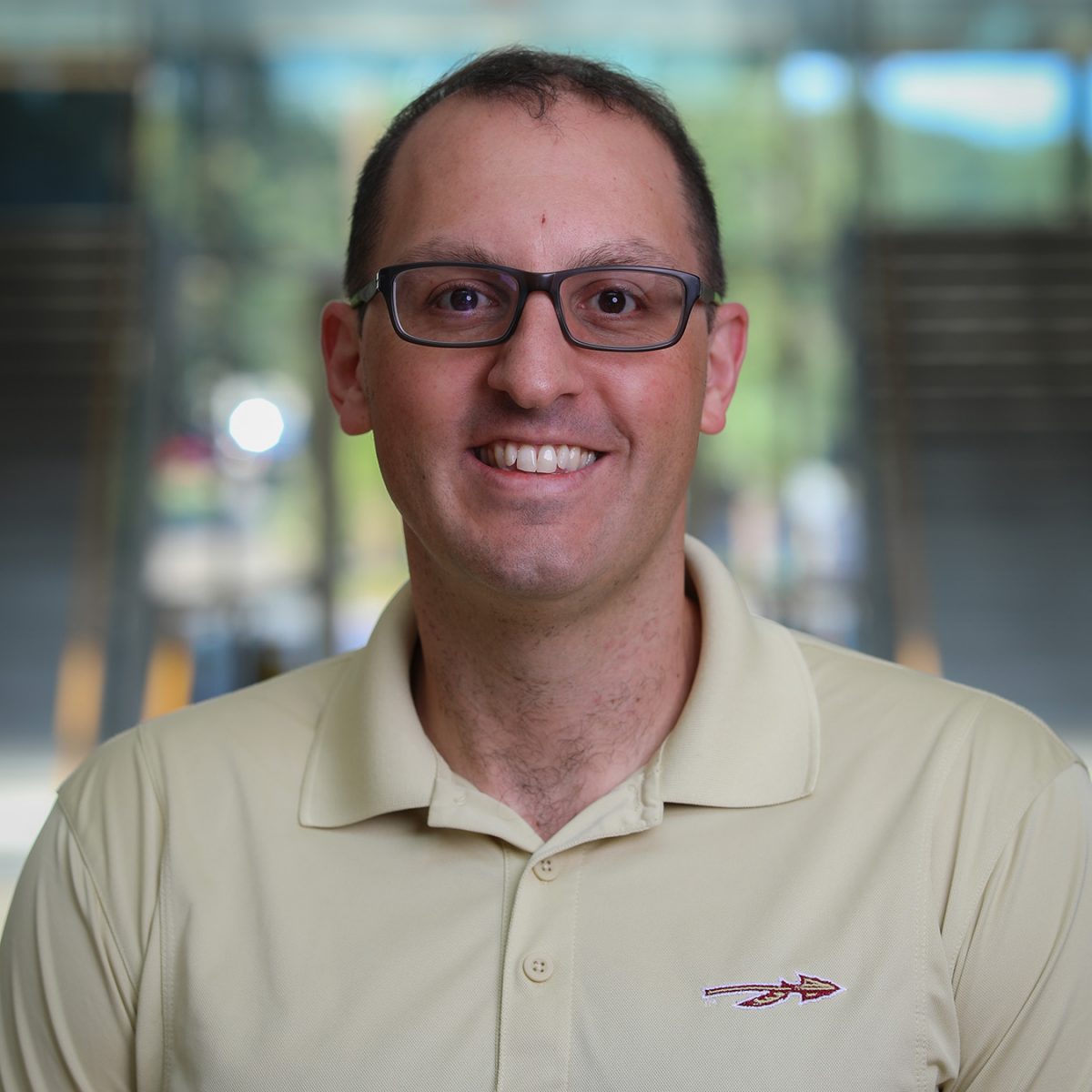
A record three faculty mentors who helped students with Honors thesis projects were recognized at the annual Faculty Awards Celebration in April at the Augustus B. Turnbull III Florida State Conference Center.
The winners of the Honors Thesis Mentor Awards, which is earned for working with students on original research to complete an Honors in the Major thesis, were Ralm Ricarte, assistant professor in the Department of Chemical and Biomedical Engineering; Douglas Storace, assistant professor in the Department of Biological Science; and Crystal Taylor, director of research in the DeVoe L. Moore Center in the College of Social Sciences and Public Policy.
“My goal as a mentor is to help students traverse the seemingly safe yet sometimes treacherous gap which they encounter transitioning from student to professional,” said Taylor, who helped political science student Camila Aponte conduct award-winning educational policy research for Honors in the Major after previously mentoring her for a project through the Undergraduate Research Opportunity Program. “I am very honored that Camila advocated so passionately for me to continue in my mentorship role on her scholarly journey.”
The Honors in the Major Program allows upper-division students to produce advanced research under the guidance of top-tier faculty. Students must have a minimum 3.2 GPA and at least 60 credit hours with two full semesters to go before graduation.
About 175 students participate every year in the program, which allows them to graduate “with Honors,” the only opportunity to do so outside of enrollment in the University Honors Program. The program is expanding and has approved a record-breaking 164 applications to begin this summer and fall.
“Mentoring undergraduate research is a labor of love,” said Michael David Franklin, assistant director of Honors in the Major. “Faculty mentors share with students the joy of asking questions about the world and then show students the ropes of how to go about answering those questions in ways relevant to their fields.”
This is the first year three faculty mentors won the award, a testament to an especially large number of nominations from mentees, who represented 21 different departments or programs across the university.
In their nomination letters, students wrote about how their faculty mentors met with them for regular one-on-one meetings and helped them analyze data, understand statistics, identify helpful resources, conduct literature reviews, refine their writing skills, apply for conferences and present their research.
“Dr. Storace embodies the essence of exceptional mentorship,” wrote Storace’s nominator, Catherine Rodriguez, after working with him to study how fasting changed a part of the brain involved in olfaction in mice. “His guidance has been transformative, empowering me to reach new heights of academic achievement and personal growth.”
Ricarte’s mentee recognized his high expectations and encouragement.
“Dr. Ricarte’s care and genuine interest in my work have made me more excited to get in the lab,” wrote his nominator, Marie Chmara, who worked with Ricarte to create and analyze hydrogels and study their toxicity to the human body. “It makes me feel like my work matters.”





